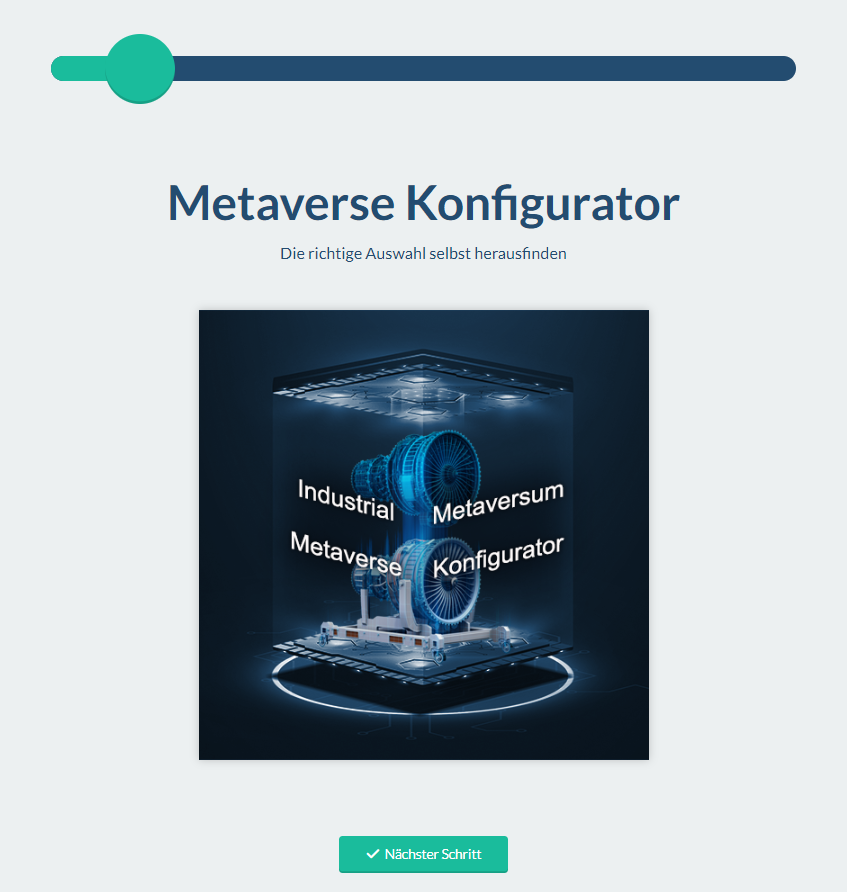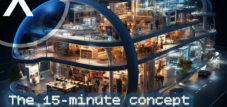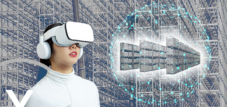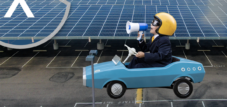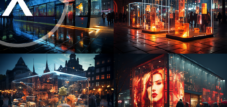The Smart City Metaverse, the index, smart logistics, digitalization and urbanization of cities
Language selection 📢
Published on: July 18, 2023 / update from: November 18, 2023 - Author: Konrad Wolfenstein
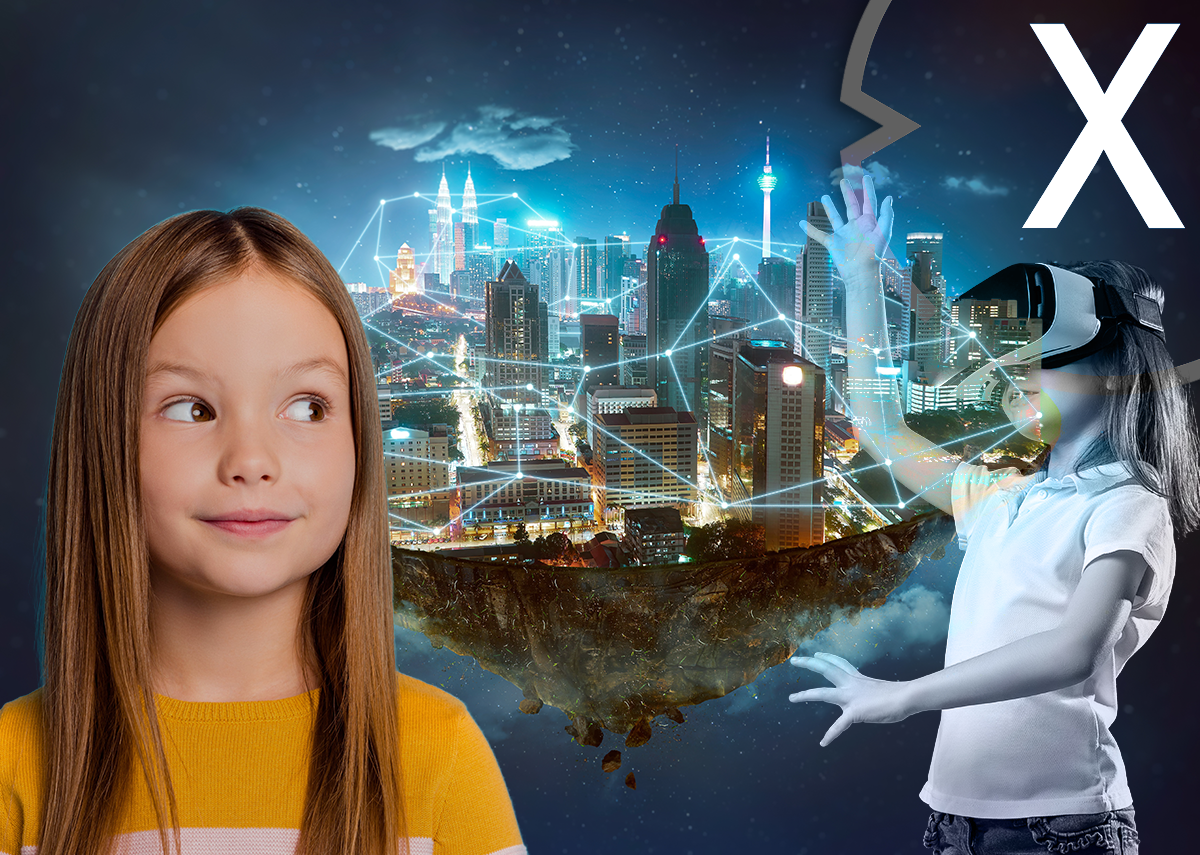
Seeing the Metaverse through children’s eyes – Pioneer Business Development – Image: Xpert.Digital
The Smart City Metaverse: How virtual and physical worlds are merging to create smart cities
In the age of digitalization and the Internet of Things, the concept of the Smart City Metaverse has become increasingly important. The Smart City Metaverse refers to the seamless integration of virtual and physical worlds to create smart cities. It is based on advanced technologies such as the Internet of Things (IoT), artificial intelligence (AI) and augmented reality (AR) to improve efficiency, sustainability and quality of life in urban areas.
The Smart City Metaverse connects various areas of a city, including transportation systems, energy supplies, public services, buildings, educational institutions and much more. This creates an intelligent ecosystem in which data is collected, analyzed and used in real time to make better decisions and use resources more efficiently.
Smart logistics plays a crucial role in a smart city. It includes the use of digital technologies to optimize logistics processes. Using IoT, big data analytics, and autonomous vehicles can optimize transportation routes, track deliveries, and improve supply chain efficiency. Smart logistics enables the smooth movement of goods, reduces traffic congestion and lowers emissions, contributing to more sustainable urban development.
Digitalization is a key driver for the development of smart cities. It refers to the use of digital technologies to capture, process and provide information in real time. Digitalization allows cities to use data to manage traffic flows, improve energy efficiency, provide public services more effectively, and facilitate interaction between citizens and city administration. Smart technologies such as intelligent traffic light systems, real-time parking availability and mobile applications for citizen participation are just a few examples of how digitalization can improve urban life.
Urbanization of cities is a global trend with more and more people living in urban areas. This rapid population growth presents cities with enormous challenges. Smart cities offer solutions to meet these challenges. By integrating technologies and data-driven approaches, smart cities can optimize resource use, improve transportation infrastructure, reduce environmental impacts and improve residents' quality of life.
➡️ The implementation of the Smart City Metaverse and the development of smart cities come with challenges. Privacy and security concerns must be addressed to ensure the protection of personal information and the security of systems. In addition, implementing smart technologies requires significant investments in infrastructure and resources. Nevertheless, smart cities offer immense opportunities to make cities more sustainable, efficient and livable and to meet the needs of a rapidly growing urban population.
Our Industrial Metaverse configurator
Just try out our universally applicable (B2B/Business/Industrial) Metaverse configurator for all CAD / 3D demo options:
Xpert (B2B/Business/Industrial) Metaverse configurator for all CAD / 3D data can be used on all devices, one platform!
Suitable for:
Creative minds in the metaverse: children, adults and pioneers looking for added value
Adults in the Metaverse: Rediscovering Curiosity and Creativity - The Metaverse Beyond Entertainment: Potential for Education, Health and Business
Children have a unique perspective on the world around them. They are curious, imaginative and have a natural ability to look at things in unconventional ways. The Metaverse, a virtual universe created through technology and digital innovation, offers an exciting way to view the world from children's perspectives.
For children, the Metaverse is a place of discovery and playful learning. It allows them to explore new worlds, express their creativity and interact with other children from all over the world. Through virtual realities, augmented reality and gamified learning approaches, children can develop their imagination and move freely in virtual environments. The Metaverse offers them the opportunity to create their own stories, solve problems and develop new skills.
But it's not just children who can view the Metaverse through their childish eyes. Adults can also benefit by rediscovering their own curiosity and creativity. The Metaverse opens new opportunities for adults to pursue their interests and passions, learn new skills, and interact with other like-minded people in virtual communities. It allows for a deeper dive into different subject areas, be it art, music, science or entrepreneurship.
Furthermore, a pioneering spirit transcends childhood or adulthood. Pioneers are people who are ready to break new ground and cross boundaries. You have the ability to recognize added value and explore synergies between different areas. In the context of the Metaverse, this means developing new applications and innovations that go beyond entertainment. Pioneers can see how the Metaverse can bring real progress and development in areas such as education, healthcare, business and communications.
An example of a pioneer in the field of the metaverse is Konrad Wolfenstein from Xpert.Digital. He realized that the Metaverse is not just a place of fun, but can also provide added value to different areas of life. He explores the possibilities of the Metaverse in terms of education, digital transformation and virtual collaboration. By approaching the metaverse with an entrepreneurial approach, he is driving the development of this new digital universe.
➡️ The Metaverse an exciting future prospect. Whether you are a child or an adult, whether you want to rediscover your inner child or are a pioneer looking for new possibilities, the Metaverse opens up a universe of possibilities. It allows us to explore the world in innovative ways, develop our imagination and see synergies between different areas. The Metaverse is not only a place of fun and entertainment, but also a place of learning, growth and progress.
Metaverse and Digital Europe: Towards the EU Citiverse?
From the Industrial, Business and E-Commerce Metaverse to the Citiverse: A Digital Europe to the EU Citiverse?
Developments in virtual reality have made tremendous progress in recent years, creating a new paradigm for business and e-commerce. Virtual realities were originally focused on the entertainment sector, but today they are increasingly being used for industrial and business applications. The rise of the Metaverse concept has led to companies increasingly embracing these new digital ecosystems, creating virtual spaces where people can interact, conduct business and provide services.
The Industrial Metaverse represents a significant evolution by connecting the physical and digital worlds. Industrial processes can now be visualized and optimized virtually, leading to increased efficiency and productivity. For example, factories can be simulated and optimized in virtual spaces to improve material flow, optimize workflows and minimize production errors. Companies are also increasingly using augmented reality (AR) and virtual reality (VR) to involve employees in training and safety measures. The Industrial Metaverse therefore has the potential to fundamentally change the way we produce and work.
A wide range of possibilities also open up in the area of the business metaverse. Companies can set up virtual offices and conference rooms where employees from all over the world can work together without being physically present. This allows companies to expand their teams globally while saving on travel costs. In addition, business meetings and negotiations can be held in virtual spaces, saving time and resources. The Business Metaverse also offers the ability to showcase products and services in virtual stores or showrooms, allowing companies to expand their reach and reach customers around the world.
The e-commerce metaverse is another emerging area that is revolutionizing traditional online shopping experiences. Instead of just shopping on two-dimensional websites, consumers can now immerse themselves in immersive and interactive virtual shopping worlds. They can see, try on or try out products in 3D before buying them. This makes the shopping experience more personalized and realistic. In addition, the e-commerce metaverse also enables the integration of social interactions. Customers can invite friends to shop together virtually and share recommendations. Companies can also use virtual influencers or brand ambassadors to engage customers and promote their products.
In view of these rapid developments in the field of metavers, the question arises as to how things will go in the future. An interesting idea is the idea of a “Civiverse” - a digital Europe or an EU Civiverse. This concept goes beyond the limits of individual companies and includes a digital ecosystem that includes all member states of the European Union. By creating a common meta-verse network, European companies, institutions and citizens could interact and cooperate with each other. A EU CITIVERSE would make it possible to offer digital services across borders and to promote cooperation in areas such as education, research, healthcare and culture.
An EU Citiverse would also have the potential to strengthen Europe's digital sovereignty. It would allow European companies to compete with global players in the Metaverse while maintaining European privacy and security standards. It could also boost the regional economy by expanding the European market for virtual products and services.
However, there are also challenges that must be taken into account when implementing an EU Citiverse. These include questions of interoperability, data security, the legal framework and infrastructure. Such a project requires close collaboration between governments, companies, technical experts and civil society to find a balanced and forward-looking solution.
➡️ The industrial, business and e-commerce metaverse offers exciting perspectives for the future of the economy and digital life. From optimizing industrial processes to efficient collaboration in virtual offices to innovative shopping experiences – the possibilities are diverse. The idea of an EU Citiverse shows that the future of the Metaverse can also be shaped at a European level in order to make the benefits of these digital ecosystems accessible to all European citizens.
The Smart City Index: benchmark for smart cities and their performance
The Smart City Assessment: An analysis of administration, IT, energy, mobility and society
The Smart City Index is a benchmark that assesses the performance of cities in relation to their smart city initiatives and their ability to use information and communication technologies (ICT) to improve the quality of life of citizens. The index serves as a tool to measure the progress and effectiveness of smart city development and to compare cities with each other.
To determine the Smart City Index, various indicators are taken into account that cover the different aspects of a smart city. These indicators usually cover areas such as administration, IT and communication, energy and environment, mobility and society. Each area reflects different aspects that are important for the development and functioning of a smart city.
The area of administration refers to the efficiency and effectiveness of public administration in a city. This includes the digital transformation of administrative processes, e-government services, transparent and participatory decision-making and the use of technologies to improve administrative governance.
The IT and communications sector focuses on the digital infrastructure and the availability of broadband networks in a city. This indicator assesses access to high-speed internet, the connection of public institutions to the network, the availability of public Wi-Fi and the use of digital technologies to improve communication and interaction between city administration, citizens and businesses.
The area of energy and environment refers to the sustainability and energy efficiency of a smart city. This includes measures to reduce energy consumption, promote renewable energy, efficient use of resources, environmental protection and waste management.
The area of mobility is about improving transport infrastructure and promoting sustainable mobility solutions. This includes the expansion of local public transport, the use of intelligent transport systems, the promotion of bicycle and pedestrian traffic and the reduction of traffic pollution and emissions.
The area of society refers to social innovation and citizen participation in the development of a smart city. This includes promoting education, healthcare, cultural diversity, safety and community engagement.
The Smart City Index allows cities to track and evaluate their progress across these different indicators. It also serves as a comparative tool to see how a city compares to other cities and where improvements can be made.
➡️ Different organizations and institutions may develop their own Smart City indices and the weighting and selection of indicators may vary. Therefore, results and rankings may differ between different smart city indices. Nevertheless, the Smart City Index provides a framework to assess the development of smart cities and track progress towards a sustainable, efficient and livable city.
Smart cities in Germany
In 2022, Hamburg was recognized as the German city with the highest Smart City Index. With an index value of 86.1, the Hanseatic city topped the comparison. The Smart City Index enabled a comprehensive comparison of all 81 German cities with more than 100,000 inhabitants with regard to their progress and achievements in the area of intelligent city development.
The Smart City Index is based on an assessment of various indicators that cover the different aspects of a smart city. These include administration, IT and communication, energy and environment, mobility and society. These indicators serve as a benchmark for a city's efficiency, sustainability and quality of life in relation to its Smart City initiatives.
In the area of administration, Hamburg is characterized by the high efficiency and effectiveness of public administration. Digital transformation, e-government and transparent decision-making are some of the factors that contributed to the positive rating.
When it comes to IT and communications, Hamburg has an outstanding digital infrastructure and wide availability of broadband networks. Access to high-speed internet, public WiFi and the use of digital technologies for communication between city administration, citizens and companies are widespread in the Hanseatic city.
Hamburg also shows high performance in the areas of energy and the environment. The city focuses on sustainability and energy efficiency by implementing measures to reduce energy consumption and promote renewable energy. Environmental protection and the efficient use of resources are also actively promoted.
The area of mobility is another area of Hamburg’s strengths. The city has set itself the goal of improving the transport infrastructure and promoting sustainable mobility solutions. A well-developed public transport system, intelligent transport systems and the promotion of bicycle and pedestrian traffic are examples of the city's efforts to reduce traffic congestion and enable environmentally friendly mobility.
Hamburg was also able to score points in the area of society with social innovations and citizen participation. Education, healthcare, cultural diversity and community engagement are actively promoted in the city and enable citizens to enjoy a high quality of life and participation.
Hamburg's success in the Smart City Index 2022 is the result of a comprehensive strategy and a holistic approach to intelligent urban development. Through investments in infrastructure, technology and innovation, Hamburg has made significant progress and positioned itself as a pioneer in the field of smart cities.
The placement of the other major German cities in the Smart City Index 2022 varies depending on individual efforts and progress in the indicator areas mentioned above. The results of the index provide indications of potential for improvement and serve as an incentive for cities to further advance their smart city initiatives and improve their performance.
Major German cities according to the Smart City Index in 2022
- Hamburg – 86.10
- Munich – 85.30
- Dresden – 81.60
- Cologne – 79.40
- Stuttgart – 78.10
- Nuremberg – 77.60
- Aachen – 77.30
- Bochum – 77
- Düsseldorf – 76.60
- Darmstadt – 75.30
- Berlin – 75
- Trier – 74.90
- Mannheim – 74.70
- Karlsruhe – 73.50
- Osnabrück – 73.10
- Ulm – 72.80
- Gelsenkirchen – 72.70
- Munster – 72.50
- Dortmund – 71.80
- Freiburg im Breisgau – 71.10
- Bonn – 70.80
- Leipzig – 70.50
- Wuppertal – 70.40
- Hanover – 70.30
- Lübeck – 70
- Paderborn – 69.60
- Kiel – 68.50
- Heidelberg – 68
- Food – 68
- Mainz – 68
- Oldenburg – 67.20
- Kaiserslautern – 66.40
- Frankfurt am Main – 66.40
- Regensburg – 66.20
- Solingen – 65.20
- Augsburg – 64.70
- Ingolstadt – 64.60
- Ludwigshafen am Rhein – 63.10
- Würzburg – 63.10
- Wiesbaden – 62.90
- Duisburg – 62.70
- Wolfsburg – 61.10
- Potsdam – 60.90
- Mönchengladbach – 59.40
- Kassel – 58.20
- Bielefeld – 58.10
- Neuss – 57.90
- Erlangen – 57.10
- Krefeld – 56.20
- Braunschweig – 56
- Hagen – 54.50
- Oberhausen – 53.80
- Heilbronn – 53.50
- Herne – 53
- Pforzheim – 52.70
- Chemnitz – 51
- Moers – 50.60
- Win – 50.40
- Jena – 50.40
- Recklinghausen – 49.80
- Hamm – 49.30
- Fürth – 48.50 Koblenz – 48.40
- Reutlingen – 48.40
- Bremen – 48.30
- Bergisch Gladbach – 47.90
- Halle (Saale) – 47.70
- Hildesheim – 47.30
- Bottrop – 46.70
- Magdeburg – 46.40
- Rostock – 45.80
- Oenbach am Main – 45.10
- Göttingen – 44.80
- Mülheim an der Ruhr – 42.30
- Gütersloh – 42
- Leverkusen – 41.60
- Saarbrücken – 41.40
- Remscheid – 40.20
- Salzgitter – 33.60
- Bremerhaven – 32.20
- Erfurt – 31.90
Smart Logistics and the challenges of urbanization
Urbanization is increasingly becoming a significant phenomenon worldwide, and both China and Japan have already achieved impressive levels of development. When it comes to urbanization, we must be aware that enormous changes are still ahead of us. The increasing population and influx into urban areas will mean that cities will face new challenges.
A particularly important aspect of urbanization is smart logistics. As the urban population increases, the demands on supply chains and the movement of goods will increase exponentially. This is where Xpert.Digital comes into play, a company that has been conducting extensive research for many years and already offers solution concepts for the challenges of smart logistics. Xpert.Digital recognizes the need to make the movement of goods more efficient and sustainable to meet the needs of the growing urban population.
While digitalization plays an important role in the development of smart cities, it is interesting to note that the media focus on urbanization and its impacts often overshadows smart logistics. However, the smooth running of supply chains and ensuring efficient supply to urban areas should not be overlooked. It is crucial that, in addition to digitalization, the logistics infrastructure is also expanded and optimized accordingly in order to cope with the increasing demands of urbanization.
Urbanization also poses the risk of supply gaps in rural regions. While the focus is often on urban development, it is important not to neglect the challenges and impacts on rural areas. Balanced development between urban and rural areas is crucial to ensure a fair distribution of resources and opportunities.
In the coming decades, urbanization will become one of the main issues we will have to deal with. It is essential that we adapt our social structure and future vision to the changing requirements and needs of the growing urban population. Sustainable development, ensuring basic services and the creation of liveable cities are of crucial importance.
Xpert.Digital is already actively working on solution concepts for the challenges of smart logistics. It is intended to help make the movement of goods more efficient, more environmentally friendly and more sustainable. At the same time, it is crucial that the broader public, the media and the government also recognize urbanization and its impacts as pressing issues and take appropriate action.
Urbanization and its consequences require a holistic and coordinated approach. It is important that various stakeholders, including governments, businesses, research institutions and citizens, work together to create a sustainable and livable environment for the growing population. Only through these joint efforts can we overcome the challenges of urbanization and achieve sustainable development for our cities and regions.
The Smart City Metaverse and the EU Plan Citiverse: Digital answers to the challenges of urbanization
The Smart City Metaverse concept has the potential to address the challenges of urbanization by combining digitalization and digital twins. Similar to the European Union's new plan with the Citiverse approach, the Smart City Metaverse aims to create smart cities based on digital technologies and virtual worlds.
The Smart City Metaverse involves the creation of a digital environment that allows real cities to be mapped and simulated in virtual spaces. By integrating digital twins, which are virtual images of physical cities, planners, city governments and citizens can test scenarios, make decisions and predict possible impacts before implementing them in the real world.
Urbanization presents cities with enormous challenges, such as an increasing population, the need for sustainable infrastructure, the efficient use of resources and addressing traffic problems. The Smart City Metaverse offers solutions to these challenges by creating a platform on which different scenarios and planning options can be simulated.
The EU plan with the Citiverse approach reflects the European Union's commitment to advancing the development of smart cities. The Citiverse approach is based on the use of digital twins and data models to support the planning and development of cities. By leveraging data from diverse sources, decision makers can gain better insights and make informed decisions to effectively address urbanization challenges.
Combining the Smart City Metaverse and the EU plan with the Citiverse approach opens up a wide range of possibilities. On the one hand, digital twins enable comprehensive analysis and planning of urban infrastructure and services. Simulations can be used to test different scenarios to assess the impact of urban planning decisions, traffic flows, energy consumption and environmental impacts.
In addition, the Smart City Metaverse enables improved citizen participation. Through the virtual representation of the city, citizens can be actively involved in the planning and design of their surroundings. This promotes transparency, participation and collaboration between city administrations and citizens.
The digital transformation promoted by the Smart City Metaverse and the Citiverse approach also offers economic benefits. New technologies and innovative solutions can be created to improve the efficiency, sustainability and competitiveness of cities. Companies and start-ups can get involved in this area and open up new business opportunities.
However, there are also challenges that need to be taken into account when implementing the Smart City Metaverse and the Citiverse approach. Data protection, data security and ethics are important aspects that must be carefully addressed to ensure citizen trust and acceptance of the technologies. Interoperability of data and systems is another important factor in ensuring that the different digital twins and platforms can communicate and integrate with each other.
➡️ The Smart City Metaverse and the Citiverse approach offer promising solutions to the challenges of urbanization. By combining digitalization, virtual worlds and digital twins, smart cities can be effectively planned, developed and managed. This enables a sustainable, efficient and livable environment for the growing urban population.
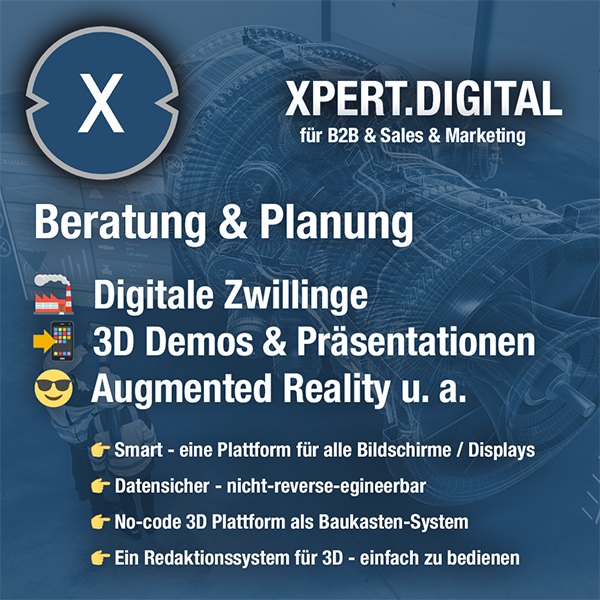
Xpert.Digital – Pioneer Business Development
I would be happy to serve as your personal advisor.
You can contact me by filling out the contact form below or simply call me on +49 89 89 674 804 (Munich) .
I'm looking forward to our joint project.
Xpert.Digital – Konrad Wolfenstein
Xpert.Digital is a hub for industry with a focus on digitalization, mechanical engineering, logistics/intralogistics and photovoltaics.
With our 360° business development solution, we support well-known companies from new business to after sales.
Market intelligence, smarketing, marketing automation, content development, PR, mail campaigns, personalized social media and lead nurturing are part of our digital tools.
You can find out more at: www.xpert.digital – www.xpert.solar – www.xpert.plus



